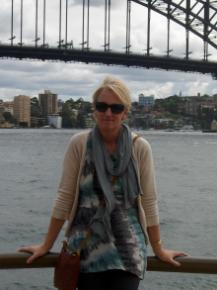 Ruth Penfold-Mounce has had a busy week with the release of her article with The Conversation on Crime Porn and violence against women on television attracting lots of media attention. She has filmed and recorded with Minster FM, and two Irish radio stations, Today FM and Newstalk Radio.
Ruth Penfold-Mounce has had a busy week with the release of her article with The Conversation on Crime Porn and violence against women on television attracting lots of media attention. She has filmed and recorded with Minster FM, and two Irish radio stations, Today FM and Newstalk Radio.The article has also been republished in a range of online sites including Scroll.in which has led to a large readership in India. It has been viewed over 14,700 times so far since its publication and is continuing to be a key to public engagement with how much violence is too much.






